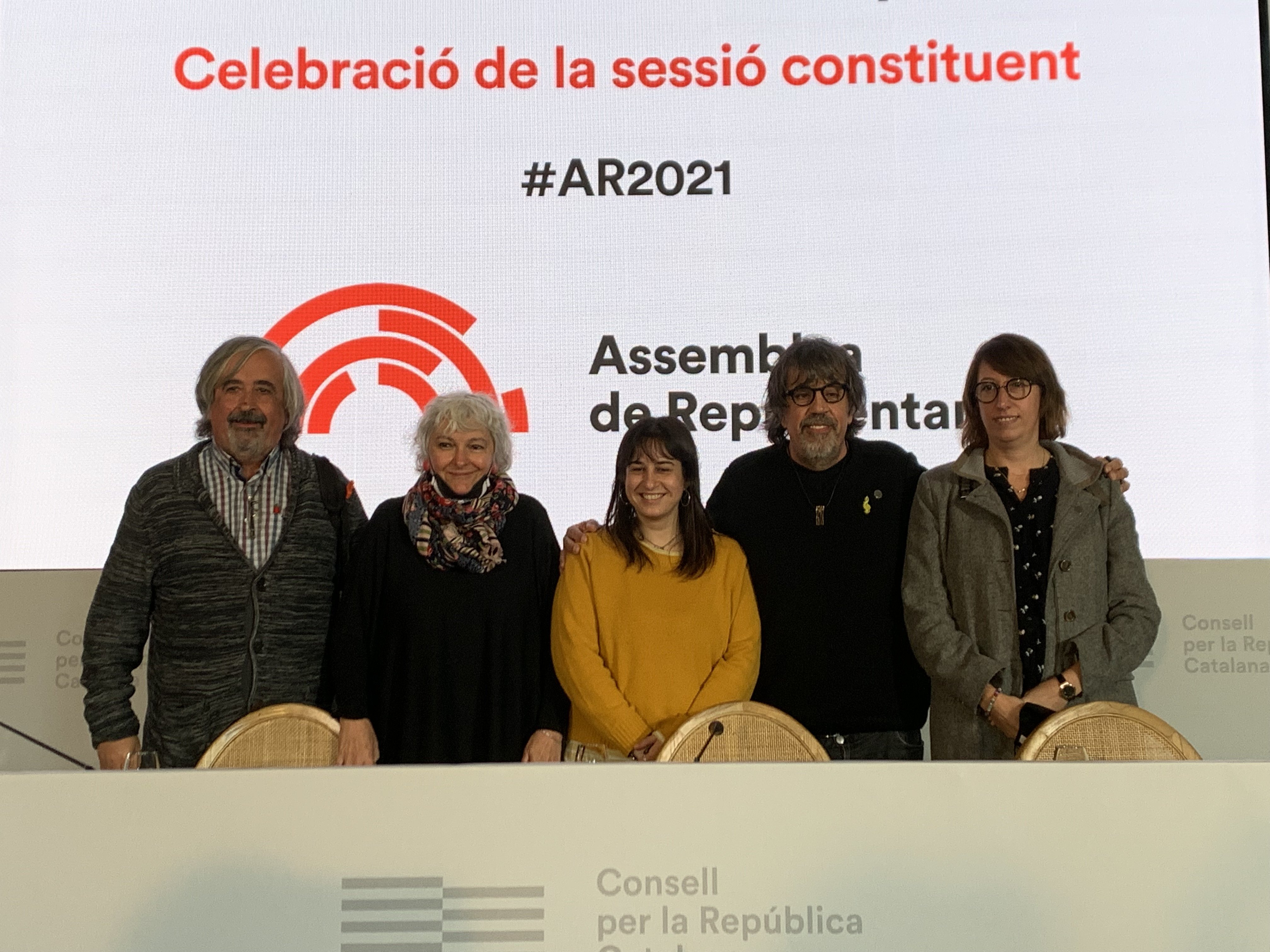The new Assembly of Representatives of Catalonia's Council for the Republic has given a clear message about its will for political transversality this weekend. On Sunday in Canet de Rosselló (Northern Catalonia), the acts of constitution of the assembly of 121 representatives ended with the election of a representative of the CUP party, Ona Curto, a municipal councillor in Arenys de Mar, as the organ's parliamentary speaker. One of eight candidates who stood for the office, Curto was a runaway winner with 50.4% of the total vote.
Curto will thus also head the five-member procedural Bureau of the Assembly. The mayor of the Northern Catalonia town of Banys d'Arles, Maria Costa, was chosen as the first deputy speaker, while the former ERC councillor Jordi Pessarrodona will be second deputy speaker. The Bureau also has two secretaries: the first post went to journalist and former ERC deputy Joan Puig and the second to MP of the Democrates party, Assumpció Laïlla.
"We come to build, to get things done, to work with all sensibilities and outlooks," said Ona Curto when she took office, before opening the debate and vote on the decree establishing the committees which the Assembly is to create.
A very useful tool
Before the election, Curto had stressed that the Council for the Republic, created as an organ to advocate for Catalan independence from exile in 2018, is a very useful tool and one that "right now has more strategy and points of content" to advance the push towards independence. The Arenys town councillor attributed the scarce presence of the CUP on the Council, where only Poble Lliure is present, to "a point of ignorance and also distrust".
In this regard, she insisted on the need to legitimize the Council and the importance of occupying this space, which is why she has opted to add broader sensibilities, and incorporate other positions and transversality. She stressed the importance of women, who make up more than 70% of the Assembly.
"Unprecedented exercise in participatory democracy"
Earlier on Sunday, the Assembly of Representatives of the Council for the Republic was constituted by the 121 representatives of this body, which will act as the Parliament of the Council. They had been elected by members on 29th, 30th and 31st October, with votes being cast for 81 places from citizen candidatures and 40 places for elected officials from within Catalonia.
Activist and linguist Blanca Serra, provisional chairperson for the constitutional process on Sunday, described the event as "an unprecedented exercise in participatory democracy", which grants the right to vote from the age of 16, with the use of secure online electronic voting and open lists; she stressed that the Assembly does not depend on the "illegitimate legality of the kingdom of Spain or the regime of 1978" and that it puts the question of independence at the centre of the political debate. The acting speaker denounced the "landscape of submission" in which Catalonia currently finds itself, which, she warned, "has ended up transforming into something natural".
The members of the Assembly of Representatives of the Council for the Republic include president Carles Puigdemont, and exiled ministers Toni Comín, Clara Ponsatí and Lluís Puig; the speaker of the Catalan Parliament, Laura Borràs, as well as different elected officials of Junts, Demòcrates, the CUP, and some ERC officials who have dodged their party's reluctance to support this body. Among the latter is Ermenegild Llovet, municipal councillor of Sant Pere de Torelló, who asserted that "the Council is an essential tool to give continuity to the republican October" and asserted that it will once more create a transversal tool in which "it is not asked where everyone comes from".
In the main image, the five members of the Bureau of the Council for the Republic's Assembly of Representatives / ML

